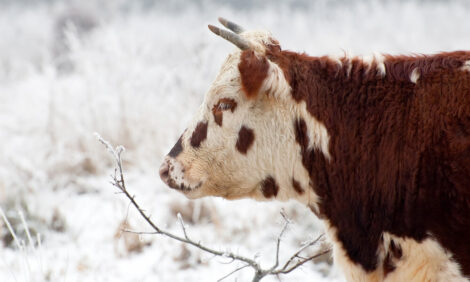



New Zealand M. bovis eradication on target, but still work to do
On 21 July 2017, diagnostic samples taken from a South Canterbury, New Zealand dairy herd tested positive for Mycoplasma bovis (M. bovis). This bacterium had never previously been found in New Zealand. Since then, significant progress has been made in driving down the numbers of farms affected by M. bovis.According to Stuart Anderson, Programme Director (MPI) New Zealand, Tim Mackle, CEO DairyNZ, and Sam McIvor, CEO Beef + Lamb, New Zealand is on track to achieve eradication, but there’s still a lot of hard work ahead. Here is their update:
We expect to find more infected herds as we actively look for those final pockets of infection, so the industry needs to remain vigilant.
As Programme partners, MPI, DairyNZ and Beef + Lamb New Zealand are working together to support affected farmers through this eradication programme.
National Surveillance tools prove their worth
Our National Surveillance tools, including bulk tank milk screening and beef surveillance, continue to provide confidence M. bovis is not widespread.
These tools play an important role looking for infection outside the tracing network. They’ll also play a significant part in providing the confidence needed to declare New Zealand M. bovis free.
Bulk Tank Milk (BTM) screening
Each month, a sample is taken at the point of collection, as part of the normal milk collection process. This is screened for M. bovis antibodies and detects where we need to take a closer look.
Recently this screening tool helped find several infected farms, one dairy farm in Canterbury’s Selwyn District, three dairy farms in Ashburton District and further farms in this area connected by cattle movements.
Most recently, our November bulk tank milk screening from almost 11,000 dairy farms across New Zealand has not detected any additional farms. This continues to indicate there is no widespread infection associated with the Canterbury cluster.
Beef Surveillance Programme
The programme screens beef cattle not connected to known infected properties, alongside TB testing and at meat processors. As at 16 December, over 125,100 beef cattle have been tested from over 6,000 farms; no infected beef farms have been found from this surveillance to date.
What’s next?
As we continue to find fewer cases, the focus is shifting to long-term national surveillance to provide confidence that the disease is absent. An independent Technical Advisory Group has been appointed to review plans for this ‘proof of absence’ phase.
It wouldn’t have been possible to reach this point without the support of farmers and rural communities – there’s still some way to go, but we are confident that working together, we can beat this disease.
What can producers do to help?
Keep your NAIT up to date
One of the main ways M. bovis spreads is movement of infected cattle between herds. Good NAIT records are vital – they help trace infected animals faster and stop the spread to other cattle.
Do your checks before buying stock
These DairyNZ resources can help you protect your property from disease:
TheCattleSite News Desk


